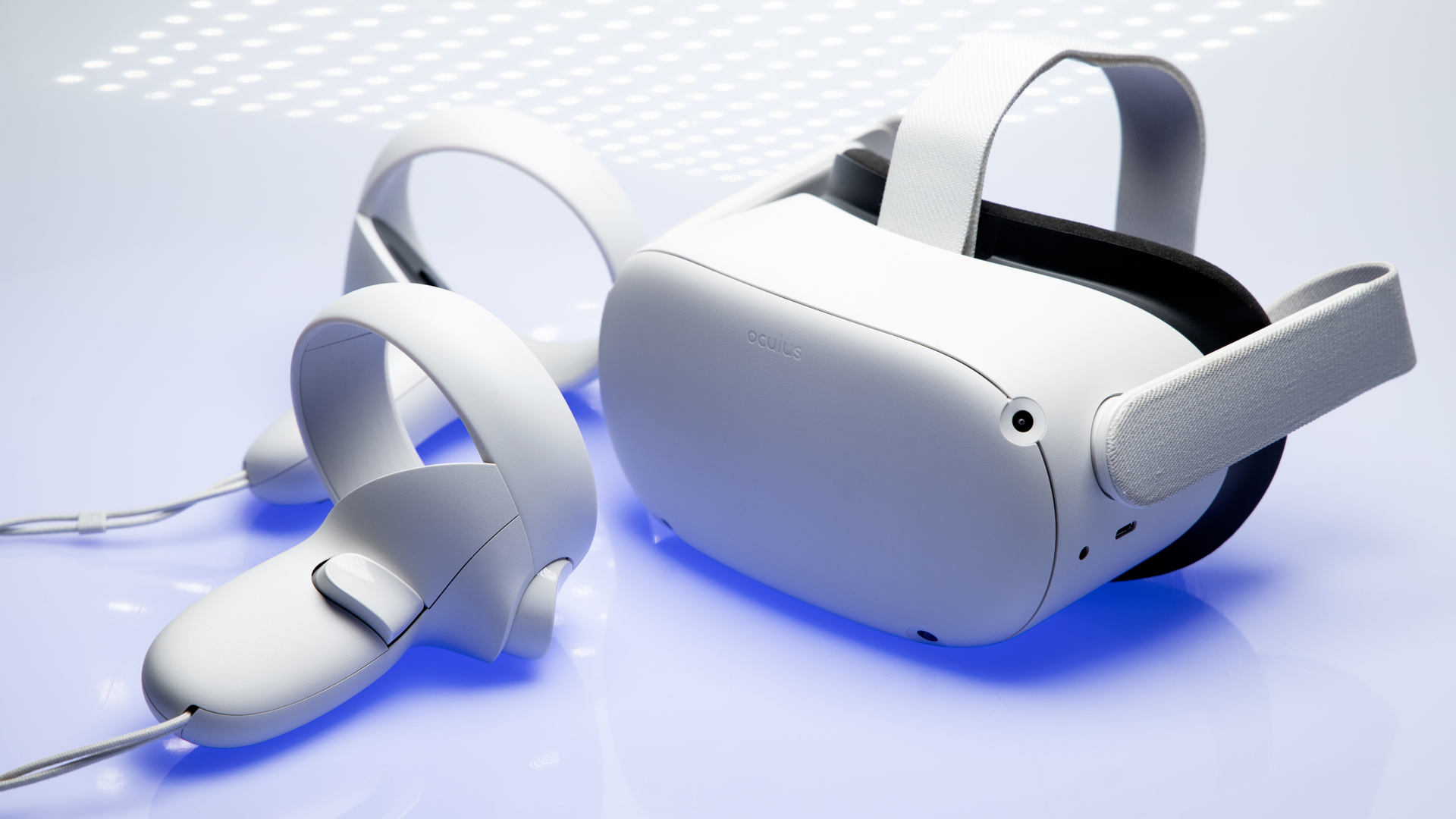Meta Quest is a mess of a rebrand we don't want or need
Opinion: Meta is dropping the 'Oculus' brand name and renaming all the hardware and software to mixed reviews

Oculus means an eye-like opening and when applied to the world of VR as it was when Palmer Lucky launched Oculus VR in 2012 and later with Oculus Rift and Quest VR headsets, it implies a view into another world. But now that eye has squeezed shut, blinked in confusion, and reopened as Meta Quest: a Frankenstein word salad that means less than the sum of its parts.
Meta, formerly Facebook, announced the changes late last year, soon after renaming the entire Facebook conglomerate to steer into the heady fumes of a still unrealized Metaverse. Everything Mark Zuckerberg's creation would do from that point forward would be in service to building out this virtual world and experience.
It started with Oculus
At the forefront is Meta's sizeable investment in Oculus, which it bought for $2 billion in 2014. Since then, it's done an admirable job of funding the research and development and growing the brand with new, more affordable, and consumer-friendly virtual reality headsets including the Oculus Quest, the Oculus Quest 2, the upcoming Oculus Quest 3, and the bleeding edge Project Cambria.
These headsets are the doorway to what is still a vastly underdeveloped Metaverse. There's Facebook's Horizon Worlds and, that's pretty much it. Despite the disappointment of the current Metaverse experience, Oculus' role as the standard-bearer for what the Metaverse might were bound to its branding: it's about seeing, and seeing is believing in the Metaverse.
The new name, which is now starting to appear on social media and, it seems, inside the Metaverse (Horizon Worlds), force-feeds Facebook's new Meta brand, making "Quest" its unwilling partner. To be fair, the former Oculus Team, now Reality Labs, is 100% on board with the rebranding.
The reality
As Reality Labs VP of AR/VR Andrew Bosworth explained in an October 2021 Facebook post:
"When people buy our products, we want them to clearly understand that all of these devices come from Meta and ladder up to our metaverse vision. That’s why we’re evolving our brand across our current lines of hardware in-market, as well as for all future products, in order to bring more consistency across the portfolio and more transparency to consumers."
Get daily insight, inspiration and deals in your inbox
Sign up for breaking news, reviews, opinion, top tech deals, and more.
He said they wanted to make it clear that Quest is a Meta product and that meant "shifting away from the Oculus brand for our hardware."
Well, maybe, they weren't 100% into the idea, Bosworth also wrote this:
"We all have a strong attachment to the Oculus brand, and this was a very difficult decision to make. While we’re changing the brand of the hardware, Oculus will continue to be a core part of our DNA and will live on in things like software and developer tools."
But DNA is not branding and, soon, all remnants of "Oculus" will disappear.
In the meantime, the change is proceeding along a bumpy path to completion. The initial changes have been met with derision.
When Meta Quest - blech - highlighted the name change in a tweet, the replies were almost universally negative. People called it an "awful, awful decision," and pointed out that "Oculus sounds way better and perfectly describes how your interact with the virtual environment."
New Name. Same Mission. pic.twitter.com/USJafAPEdWJanuary 26, 2022
To its credit, Meta and Meta Oculus jumped in to remind people that the name better reflects the company's mission.
But does it? The mission is to show people a new world and maybe a new way of living. Oculus reminds people that this is something they need to see. Meta Quest sounds like a journey you probably won't take, or you'll think about taking and maybe draw a picture of yourself using a Meta Quest headset, without ever actually doing it. So Meta.
Oculus founder Palmer Lucky, who is no longer with Meta, took note of the blowback, retweeting the Meta Oculus Tweet with a single word, "Ratio." He was highlighting how the likes and retweets of the news were rather low, but the comments were quite high, a typical indication that no one is happy. They call it "getting ratioed."
Better names
If they had asked us, we would've suggested:
- Oculus, a Meta company (which is really a great way to describe a VR firm)
- Oculus Quest by Meta
- Oculus
- Oculus Quest, the Metaverse company list
- Anything else
Slapping "Meta" everywhere might help the company streamline its operations, but it's leaving consumers confused and a little over "Meta" and the "Metaverse" before it really gets started.
Why leave potential Metaversians with a bad taste in their mouth simply because you're worried about branding? Meta Quest is a bad name. It'll never be a good one in this world or the Metaverse.

A 38-year industry veteran and award-winning journalist, Lance has covered technology since PCs were the size of suitcases and “on line” meant “waiting.” He’s a former Lifewire Editor-in-Chief, Mashable Editor-in-Chief, and, before that, Editor in Chief of PCMag.com and Senior Vice President of Content for Ziff Davis, Inc. He also wrote a popular, weekly tech column for Medium called The Upgrade.
Lance Ulanoff makes frequent appearances on national, international, and local news programs including Live with Kelly and Mark, the Today Show, Good Morning America, CNBC, CNN, and the BBC.